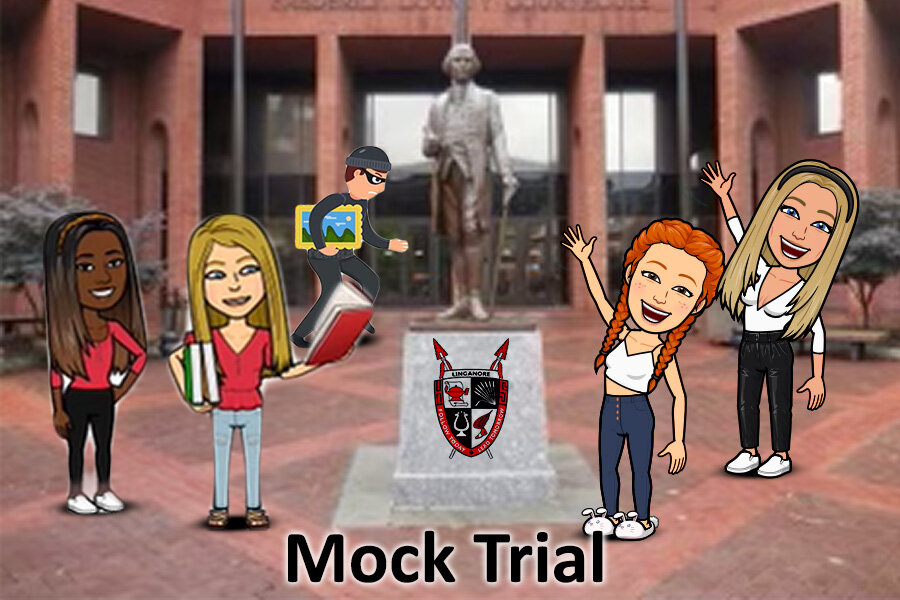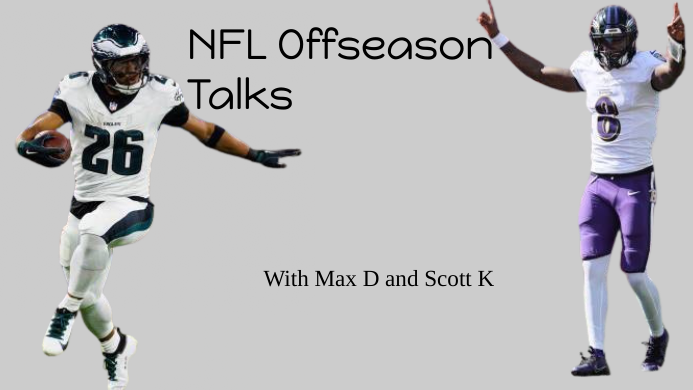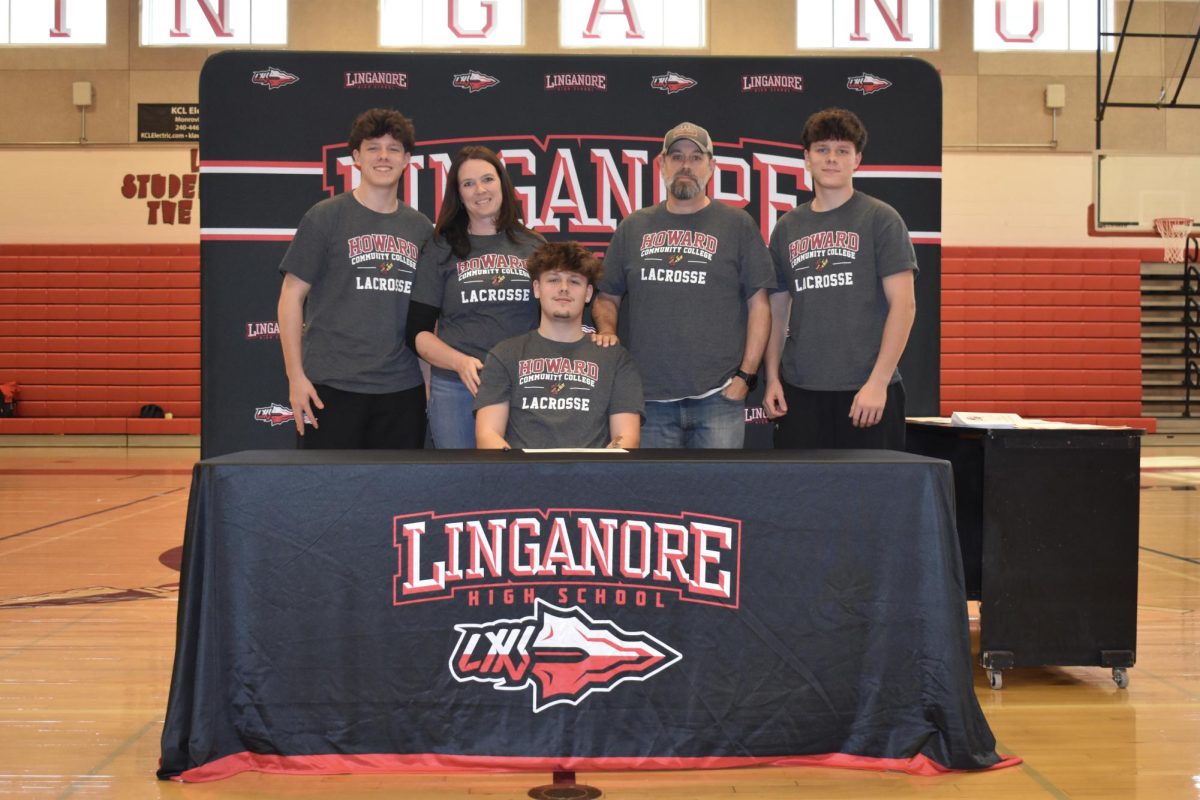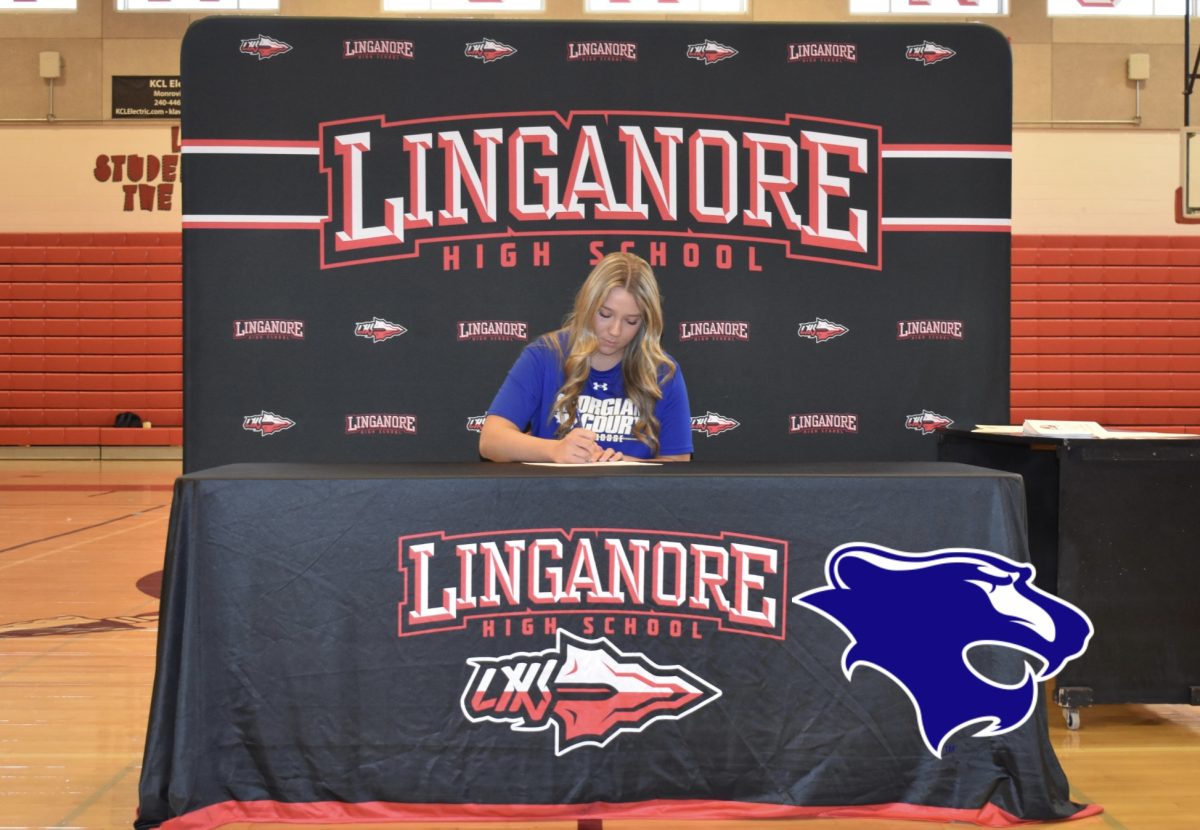Mock Trial team prevails in virtual court: Art thieves will come to justice
On January 19, 2021, the Mock Trial team won their first virtual competition against PG county school Potomac High.
January 24, 2021
Each year, Mock Trial cases rotate between civil and criminal cases. This year the case is a criminal case and deals with theft of artwork from the Walters Art Museum. The defendant is charged with felony theft and assault of the museum security guards.
Mock Trial is a club where students take on positions in court such as lawyer or witness, as well as a stance such as prosecution or defense, and look deeper into a case given to them. They resume the same processes that would occur in real court, often even in a real courtroom, but not with COVID-19. Now they resume the virtual courtroom.
Pleadings from the Prosecution
Senior Kevin Aquino has been in the Mock Trial club since he was a freshman and is now on the virtual team. When Aquino is scheduled to be a lawyer, he prepares by writing direct questions for witnesses and cross examination questions for the opposing team. He prints them out in addition to a list of possible objections that he might need for when opposing lawyers break a rule or ask a question improperly.
“I joined Mock Trial because my friends and I saw it at the club fair and decided that it looked fun. My favorite roll to take on in court is witness because of how creative yet challenging it can be to get into character while still answering on topic questions,”
Being a returning member, Aquino has been able to experience both in-person and virtual versions of the Mock Trial team.
“With the virtual Mock Trial team, there are no longer dinners in our coaches’ room before meets, and we don’t have to worry about finding a place to change into court attire. Even with those perks, I would say that I liked the in-person Mock Trial better as it had a more social environment as we were in the classroom, bus, and courtroom.”
Aquino even says that he notices a change in the roles themselves between the in-person and virtual Mock Trials.
“Being a witness has changed through how you have to pay closer attention to facial expressions instead of watching for as much body language as you would before in the courtroom. The lawyer position has also changed as courtroom procedure is all out the window. We just still have to say ‘Your Honor’ and wear something nice,” said Aquino.
Junior Kelly Alt is a returning member. When Alt is scheduled to be a witness, she prepares by reading the affidavit, a written statement of fact voluntarily made by an affiance or deponent under an oath, a couple of times a day to be prepared for questions that the other team could ask.
“I joined Mock Trial when I was a freshman because it sounded very interesting and I thought I’d give it a try. My opinion on the virtual model is that it is honestly not what I was expecting. Everything is much more difficult as there are new procedures to learn and follow,” said Alt.
Senior Maya Apau is a first time Mock Trial member. When Apau is scheduled to be a shadow, there is no preparation as she is in an observing and learning position.
“I joined Mock Trial this year because I hope to pursue a career in law and journalism. I saw that this experience could help me in the future, so I took the opportunity and it was great so far,” said Apau.
Discoveries by the Defense
This virtual year has been a hectic one for freshman Zoe Theologue. However, that didn’t stop her from joining the Mock Trial team. As a new member, she is in the shadow position so that she can learn more about the process before participating.
“I haven’t spent much time on the Mock Trial team, but it is an amazing place to work with others on something that we all feel very passionate about. Even virtually, I am very much enjoying the club and making new friends with other members,” said Theologue.
This virtual year is Sophomore Tatum Pugh second year on the Mock Trial team.
When Pugh is scheduled to be a lawyer, she prepares by spending several hours each day on google meets with our coaches to review information, procedures, and reasoning to be prepared for objections with cross-examinations.
“I decided to join the Mock Trial club during the fall of my freshman year, as I’ve always been interested in law as a career pathway. Although I do miss being able to experience Mock Trial in-person, I would definitely continue with mock trial if it was virtual again next year,” said Pugh.
Pugh also says that her favorite aspect of the virtual season has been that they are able to compete against other schools across the state, learning more and more about the trial process while participating in it.
Junior Mady Hull joined the Mock Trial team as a sophomore, so she has been able to experience both in-person and virtual Mock Trial. When Hull is scheduled to be a witness, she prepares by going through the affidavit and then has a lawyer do a cross and direct examination against her.
“I joined Mock Trial because I was interested in eventually having a career as a lawyer and a few of my friends had told me that Mock Trial was a lot of fun. Having a virtual season this year didn’t impact my decision at all. I had so much fun last year and I wanted to keep doing it and learning either way,” said Hull.
Claims from the Coaches
Since Hendi both teaches government and coaches Mock Trial, she has had the chance to see the impact that Mock Trial has on students and their knowledge of the court system.
“I do see a greater understanding in the legal process and the rule of law (no one is above the law). Students really understand the judicial branch, the burdens of proof, and the rules of evidence,” said Hendi.
Hendi became a Mock Trial coach when the LHS Mock Trial coach was promoted to an assistant principal position. She happily volunteered to take it over and has enjoyed continuing it ever since.
“As it is said in the Mock Trial team slogan, LHS Mock Trial – guilty of awesome. Mock trial is perfect for those who want to pursue legal and criminal justice careers. It is a perfect activity for students interested in acting and public speaking as well,” said Hendi.
Jamie Hendi is a government teacher as well as Mock Trial coach. She has been teaching for 9 years and coached Mock Trial for 7 years. This has given her the opportunity to see the club change over time and adapt to the current pandemic.
“Everything is being done virtually which has been very strange. One of the most fun parts of Mock Trial is that the team becomes very close-knit – we spend a lot of time together and we work hard but also have a lot of fun together. I am so thankful that we are still able to do it virtually, we have been working hard even if it’s on google meet,” said Hendi.
With virtual Mock Trial, preparation for their competitions is still very in depth and similar to what it would be in person.
“With the virtual season, The Maryland Mock Trial association still releases a casebook that contains all the information that you need for the case. We read through it, make charts of strengths and weaknesses for each witness, and assign parts and the team for each witness,” said Hendi.
The team additionally brainstorms during their frequent virtual meetings.
“We come up with their trial strategies, questions for trial, develop opening statements/closing arguments, and prepare for objections. It’s just all over our computer screens now,” said Hendi.
Before becoming a teacher, Hendi was a lawyer. She graduated from the Catholic University Columbus School of Law and then clerked for a judge in DC Superior Court for a year working on felony criminal cases. She then worked for an investigative consulting firm – Investigative Group International, Inc. – as a lawyer and investigator, until the time she left to teach.
“My legal experience has definitely helped me to coach Mock Trial because I understand the legal principles at play, the rules of evidence, and the trial process,” said Hendi.
English teacher Susan Peterson is also a Mock Trial coach. She has been teaching for 7 years and has been a Mock Trial coach for 5 years.
After Peterson’s first two years of teaching, she decided to go to law school which led her to practice law for the next 31 years as a land use and zoning attorney. However, she missed teaching which led her to the high school position that she is in today.
“The reasons that I became a Mock Trial coach were that first of all, Ms. Hendi was very persuasive, and secondly, I still enjoy aspects of the practice of law. I like the challenge of working through the testimony and evidence contained in the casebook, reading the law, applying it to the facts, and developing a trial strategy,” said Peterson.
Peterson also connects her English background with her success and enjoyment of practicing and coaching law.
“In English, we study rhetoric and examine how good writers and speakers use words to influence an audience. In law, we do the same thing. It is all persuasive writing and speaking,” said Peterson
There are a lot of things to enjoy about Mock Trial. However, as a coach and teacher, Peterson has a unique favorite aspect.
“I would say that what I enjoy the most about coaching Mock Trial is that during the last couple of days of practice, the lawyers and witnesses know their material, and they realize how well they have learned to think on their feet,” said Peterson.






